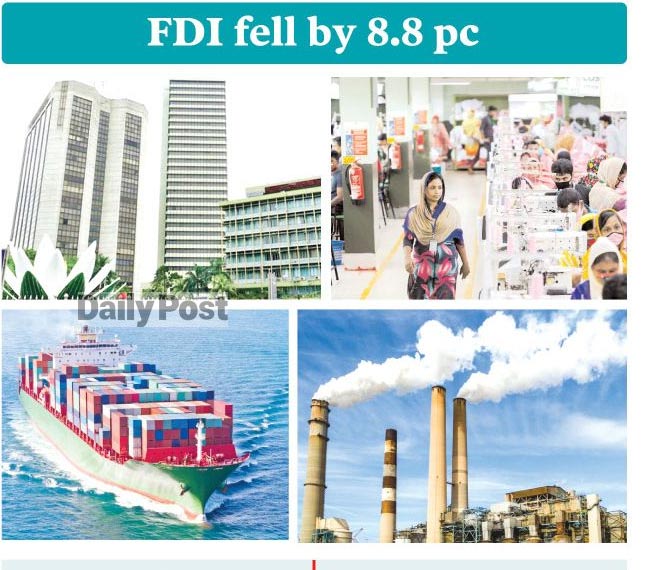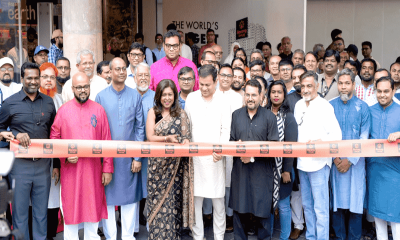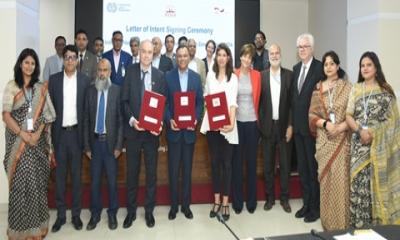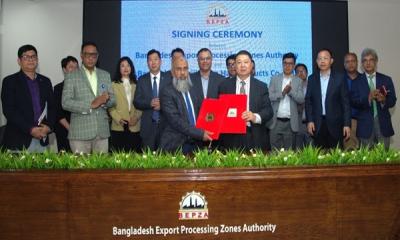-FDI fell by 8.8 pc
-Industrial output growth in 5.34 pc, lowest since Covid-19
-Export declines, cost of imports increased
-Operating expenses increased by 30 pc
-9 pc bank interest increased to 14 to 15 pc
After the July uprising, country is facing gallon of problems. There have economic crisis, dollar crisis, unemployment problem, job opportunities getting minuscule, electricity production complexities and gas crisis and then there are mighty environmental disasters like flood, cyclone, heavy rain and landslides. The journey of building a new prosperous Bangladesh without discrimination is getting tougher day by day. It’s just the consequence of the ousted Awami League policy and their cause and effects on Bangladesh intellectuals say.
However, the businessmen are not getting confidence in new investments as the law and order situation is not normal and the investment environment is not improving. On the other hand, due to increase in policy interest rate, bank loan interest rate is also increasing. Businessmen are worried about new investments. They say that under the pressure of excess interest, investment may decrease and employment will also decrease. Due to the ongoing unrest, the sales of most of the companies have also collapsed.
Due to various reasons including not being able to do LC on time, energy crisis, the production of the factory has come down to zero. Production was shut down by 25 to 40 percent due to the energy crisis. The heavy industry, apparel and textile sectors are in dire straits due to factory labor strikes, which has a negative impact on export growth.
The amount of foreign debt has increased; the cost of imports has also increased.
Businessmen say that at the end of the previous government, business was stagnant due to various reasons. After the new government came, business was expected to speed up. Before that, there were attacks and vandalism in industries and cases of murder in the name of businessmen. The businessmen are disappointed. They forced to withdraw from new investments. Fear is working in many.
Abdul Awal Mintu, the former president of FBCCI, the top organization of businessmen, said, "those who are creating employment through investment in the country were oppressed. Investment is needed to ensure employment of the unemployed, but there is no investment environment in the country. Investors now face a quadruple threat.
Mir Nasir Hossain, former president of FBCCI said, "9 percent interest on bank loans has increased to 14 to 15 percent now." In this situation it is difficult to sustain the business with so much interest. Then the debtor's rule was changed. If the installments are not paid now, default will be declared after 90 days. We are worried about it. In addition to the increase in interest rates, fuel is not being supplied as per demand.
Dhaka Chamber of Commerce and Industry (DCCI) former president Rizwan Rahman said, 'When someone goes to invest in a country, he thinks about security first. Why should one invest money when one does not feel safe? We should bring the law and order situation under control by empowering our law and order forces very quickly.
According to the data, operating expenses in businesses have increased by 30 percent in the current situation. The interest rate of bank loans has increased steadily and exceeded 15 percent. Due to the ongoing crisis for almost two and a half years, the dollar has also increased by about 41 percent. Imports have decreased by about 30 percent. This has reduced industrial production. Transportation costs have increased. Due to the effect of these, the import of industrial raw materials has become expensive.
Entrepreneurs say that the wrong policies of various regulatory bodies and various circulars issued from time to time have turned many entrepreneurs into defaulters. So not a voluntary debtor; Rather, there has been a demand to sustain the entrepreneurs who have defaulted on the government's policy with long-term policy support on a priority basis. Otherwise, they fear that stagnation in the country's economy along with employment will be prolonged.
However, good businessmen who have not been able to repay loans regularly due to Bangladesh Bank mismanagement, dollar crisis, post-Covid crisis and Russia-Ukraine war, have suffered due to business management and policies, policy support for survival and exit from business if they cannot survive. There is talk of giving policy support to become.
There was extreme unrest in the entire industrial areas of Savar, Ashulia, Tongi and Gazipur for two consecutive months of August-September. By October, large-scale unrest subsided, but occasional violence continued. Foreign buyers are expressing concern, shifting new export orders from Bangladesh to other countries as they feel risky. Taking advantage of the instability in Bangladesh, the exports of competing countries are increasing.
Attacks have taken place not only in factories around Dhaka, but also in factories outside Dhaka. Recently, in the face of workers' agitation, the factory of Pran Agro Company in Natore was declared closed. More than five thousand workers work in the factory. Authorities said the company is paying salaries as per the salary structure set by the government. Apart from this, increments have been given to the workers in the month of July.
Meanwhile, along with domestic investment, foreign direct investment has also declined. Foreign direct investment in the next financial year has decreased by 8.80 percent compared to 2022-23 financial year. This information has emerged in the latest report of Bangladesh Bank.
According to the central bank report, the net foreign investment at the end of 2023-24 financial year was 1.47 billion dollars, which was 1.61 billion dollars at the end of 2023 financial year. That is, 142 million dollars has decreased in the space of one year.
According to the data of Bangladesh Bank, the foreign direct investment has come mostly in the textile sector. Banking, pharmaceuticals and energy sectors followed.
The concerned people said that due to the dollar crisis, the private sector of Bangladesh is not in a position to invest outside the country. Lack of consistency in laws and policies has increased uncertainty among investors. To attract investment, not only incentives should be given, but also necessary reforms should be made.
Meanwhile, Bangladesh Bank is increasing the policy interest rate in an attempt to control high inflation. The loan interest rate has reached 15 percent. Traders are concerned about fresh policy rate hikes amid a slowdown in capital equipment import credit and a slowdown in private investment.
Bangladesh Bank recently increased the policy interest rate by 50 basis points to 10 percent. This is the fifth time this year and the third time during the tenure of Governor Ahsan H Mansoor that policy interest rate has been increased.
Former president of FBCCI, the country's top organization of businessmen and industrialists Jasim Uddin said, 'The country's economy is almost 80 percent dependent on the informal sector. 70 percent people are outside the banking sector. Industry has to pay huge subsidies on gas, electricity and raw materials. Apart from this, most of the raw materials are import dependent. In countries with such a structured economy, policy by raising interest rates is likely to be counterproductive to reducing inflation. This will result in loss of business competitiveness. Investment will stagnate. In addition to increasing risk in employment, inflation will also increase.
According to the data of Bangladesh Bank, in the first two months of the current fiscal year 2024-25, loans worth 28.5 million dollars were opened for the import of capital equipment, which is 43.71 percent less than the same period last year. Even during this period the import of primary raw materials decreased by 9.81 percent.
However, Industrial production collapsed in the outgoing fiscal due to the global crisis and political unrest. In the last quarter of the financial year 2022-23, there was a growth of 10.16 percent in industrial production. There was only 3.98 percent growth in the last quarter of last financial year. Industrial production growth has almost halved in the last financial year compared to the previous year.
The latest data from the Bangladesh Bureau of Statistics (BBS) showed that the country's industrial output growth in the current fiscal fell to 5.34 percent, the lowest since the start of the Covid-19 pandemic. Last year the growth of this sector was 8.37 percent.
In the previous two financial years, the growth rate in industrial production was 9.86 percent and 10.29 percent respectively. Considering that, there is a sharp decline in the growth of the current financial year.
According to data from the Bureau of Statistics, after a growth of 11.63 percent in the fiscal year 2018-19, the growth in the industrial sector fell to 3.61 percent due to the prolonged lockdown due to the corona epidemic. After achieving 10.29 percent growth in the financial year 2020-21, the growth in this sector has been decreasing since the following year. As such, the industrial sector has seen the lowest growth in four years in the current financial year.
Finance and Trade Advisor Dr Salehuddin Ahmed said, "The government is taking effective steps to develop the domestic industry." This increases the confidence of traders. Our reserves are also increasing; the country's economy is turning around. It is not possible to do everything in three months. But we are working. Be it today or tomorrow, the political government will come to power. Government is giving priority to the food, energy, fertilizer and pesticide sectors.
ZH






